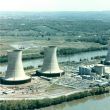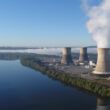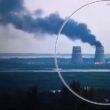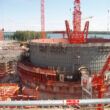How to get away with almost anything
By Pervez Hoodbhoy, April 7, 2014
I was intrigued to learn from Sulfikar Amir’s Round One essay that when the Indonesian public, fearing a nuclear disaster of the Fukushima type, insisted that the country's nuclear electricity program be scaled back—the people's demands were largely met. It is difficult to imagine that public opinion could force either the Pakistani or Indian government to similarly change course. Why? Because both countries are wedded to nuclear weapons. Because in both countries, the fires of nuclear nationalism never cease to burn. In both countries, it was opaque civilian nuclear programs that provided a necessary vehicle for the achievement of national ambitions in nuclear weapons. Amid this environment, decisions on civilian nuclear matters are not made in a reasoned, transparent manner, and one cannot be hopeful that things will change soon.
A case in point is the recent decision by Pakistani authorities to install two Chinese-supplied reactors near Karachi, home to more than one of out of 10 Pakistanis. The authorities claimed that national security was at stake and therefore the public could not be engaged in the siting decision (though it must be admitted that only a small segment of the public expressed any concern). An environmental impact assessment was approved by unnamed but handpicked persons—rammed through in order to comply with legal formalities. The Pakistan Atomic Energy Commission official in charge of the new Karachi reactor project told the press, "We requested [the Sindh Environmental Protection Agency] not to hold a public hearing because of international politics." Presumably this meant that nuclear cooperation with the Chinese overpowered all other considerations. In a similar vein, academics from Pakistani universities have in the past been denied permission, for national security reasons, to check radioactivity levels in uranium mines that local communities suspected of posing health hazards.
In India, environmentalists have had some success in mobilizing antinuclear protesters, notably on issues of land acquisition, and the Fukushima disaster energized antinuclear groups like the Konkan Bachao Samiti and the Gandhian group known as the National Alliance of People’s Movements. But though Indian activists may have mustered a few thousand protesters on occasion—most notably at the Kundankulam and Jaitapur nuclear reactor sites—they have gained no significant victories. Nothing remotely similar to movements such as European Nuclear Disarmament or the UK-based Campaign for Nuclear Disarmament has emerged in India. The Institute for Defence Studies and Analyses, a conservative Indian think tank, has published this dismissive language on its website: "An antinuclear movement in India would remain largely a marginal movement with sporadic spurts depending on the issue at hand, the site in question, and the political parties involved." Sadly, this seems correct.
This is music to the ears of the global nuclear establishment. In much of the West (and now Japan), the development of nuclear electricity has hit roadblocks because of deeply engaged and aware populations. But in many developing countries—especially those that now possess or aspire to obtain nuclear weapons—no such problem exists. In countries such as these, "building public acceptance" (as the title of Yun Zhou's second roundtable essay would have it) is easy. Publics indoctrinated in the virtues of nuclear weapons let their nations' atomic energy establishments get away with almost anything. Public subsidies are dispensed for nuclear power, but hidden for secrecy reasons, and are thus excluded from the real costs of electricity. Nuclear establishments need not reveal their plans for disaster management, prove these plans' adequacy, develop environmental impact mitigation schemes, or educate the population about radiation hazards. These establishments, operating almost unchallenged, feel little need to make the case for nuclear power over alternative energy technologies. Bureaucracies, shrouded in layer after layer of secrecy and relying on official secrecy acts, can continue to hide from the public gaze their appalling inefficiency and incompetence.
No matter how safe or unsafe nuclear energy in the West might be, it is constantly subjected to challenges from an aroused citizenry. But nuclear power in less open societies remains largely opaque, immune from public scrutiny. Under such conditions, one must expect lower safety standards. It might take more than a Fukushima disaster to change this state of affairs.
Topics: Nuclear Energy
Share: [addthis tool="addthis_inline_share_toolbox"]














